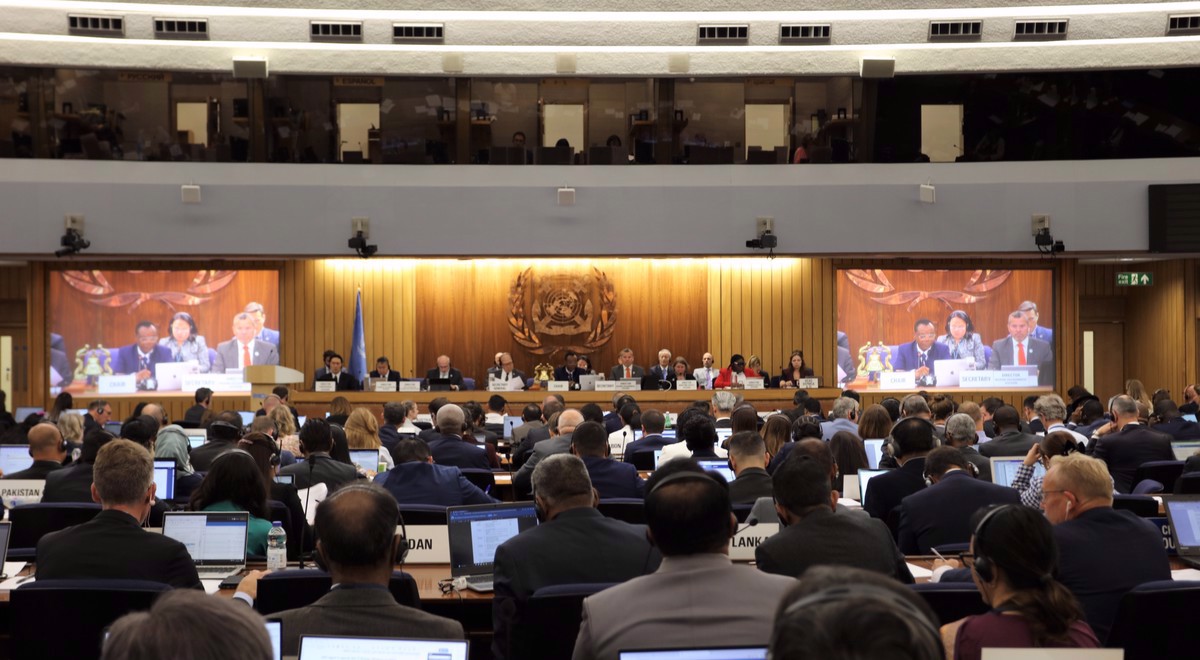MEPC 80: NGOs criticise 'useless' IMO over 'wishy-washy' GHG strategy
While shipping organisations have praised the IMO's new greenhouse gas (GHG) strategy as a "historic" climate deal, critics have lined up to pan it.
 PHOTO: The IMO's 80th Marine Environment Protection Committee (MEPC) meeting at IMO HQ this week. IMO
PHOTO: The IMO's 80th Marine Environment Protection Committee (MEPC) meeting at IMO HQ this week. IMO
Non-profits and other environmental activists have expressed disappointment after the International Maritime Organisation's (IMO) revised greenhouse gas emission reduction targets fell short of total alignment with the Paris Agreement.
The revised strategy is deliberately vague about the net zero by 2050 target, several have said. And the IMO does not yet have any credible strategy for how to align checkpoint targets with the Paris Agreement.
The IMO decided to set an interim GHG reduction target of at least 20% (striving for 30%) by 2030, and at least 70% (striving for 80% by 2040).
Climate change activists wanted a 37% GHG reduction by 2030, and 96% reduction by 2040. These Paris-aligned targets were first put forward by the Science Based Targets initiative (SBTi), a global body encouraging companies and institutions to set emission reduction targets in line with climate science. The targets were later championed by a coalition of Canada, the UK, US and island nations at the IMO, but to no avail.
Faig Abbasov, shipping program director at Transport & Environment, said this week's MEPC 80 talks were reminiscent of rearranging the deckchairs on a sinking ship.
"Aside from FIFA, it’s hard to think of an international organisation more useless than the IMO... The IMO had the opportunity to set an unambiguous and clear course towards the 1.5ºC temperature goal, but all it came up with is a wishy-washy compromise” he says.
The Clean Shipping Coalition (CSC) says that there is no excuse for this "wish and prayer" agreement.
"They knew what the science required, and that a 50% cut in emissions by 2030 was both possible and affordable. Instead, the level of ambition agreed is far short of what is needed to be sure of keeping global heating below 1.5C, and the language seemingly contrived to be vague and non-committal,” says John Maggs, president at CSC.
Lucy Gilliam, senior shipping policy officer at Brussels-based Seas At Risk, called out the "delay tactics" in IMO's working group meetings. "The real inaction happened behind closed doors where many were excluded until the final hour and in front of a near ultimatum... Let's be clear that this was not transparent, just or equitable and it is reflected in the result reached,” she says.
By Debarati Bhattacharjee
Please get in touch with comments or additional info to news@engine.online





